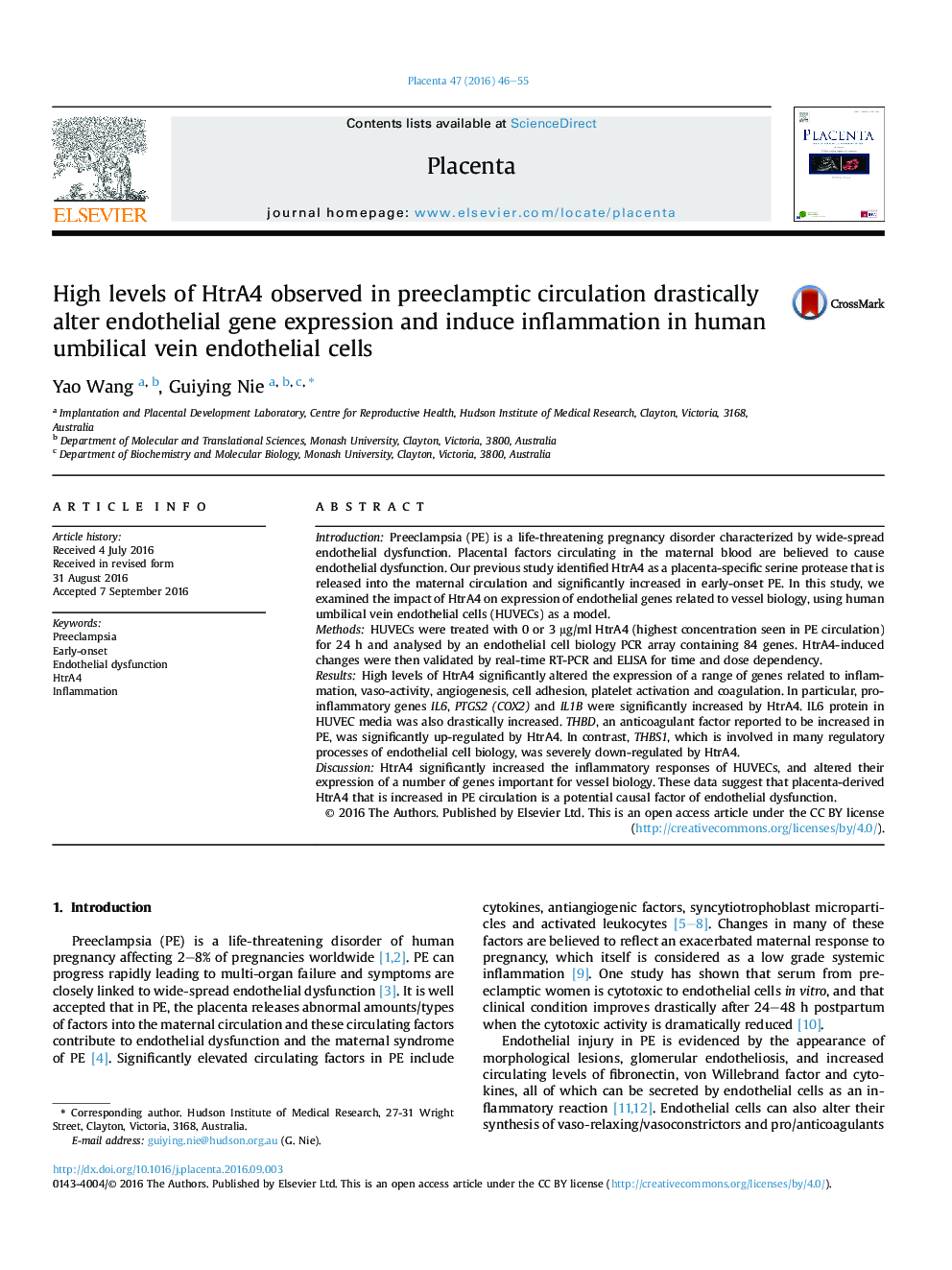| Article ID | Journal | Published Year | Pages | File Type |
|---|---|---|---|---|
| 5894101 | Placenta | 2016 | 10 Pages |
â¢HtrA4 altered expression of endothelial genes involved in vessel biology.â¢HtrA4 significantly induced inflammation in endothelial cells.â¢Placental-derived HtrA4 is a potential causal factor of endothelial dysfunction.
IntroductionPreeclampsia (PE) is a life-threatening pregnancy disorder characterized by wide-spread endothelial dysfunction. Placental factors circulating in the maternal blood are believed to cause endothelial dysfunction. Our previous study identified HtrA4 as a placenta-specific serine protease that is released into the maternal circulation and significantly increased in early-onset PE. In this study, we examined the impact of HtrA4 on expression of endothelial genes related to vessel biology, using human umbilical vein endothelial cells (HUVECs) as a model.MethodsHUVECs were treated with 0 or 3 μg/ml HtrA4 (highest concentration seen in PE circulation) for 24 h and analysed by an endothelial cell biology PCR array containing 84 genes. HtrA4-induced changes were then validated by real-time RT-PCR and ELISA for time and dose dependency.ResultsHigh levels of HtrA4 significantly altered the expression of a range of genes related to inflammation, vaso-activity, angiogenesis, cell adhesion, platelet activation and coagulation. In particular, pro-inflammatory genes IL6, PTGS2 (COX2) and IL1B were significantly increased by HtrA4. IL6 protein in HUVEC media was also drastically increased. THBD, an anticoagulant factor reported to be increased in PE, was significantly up-regulated by HtrA4. In contrast, THBS1, which is involved in many regulatory processes of endothelial cell biology, was severely down-regulated by HtrA4.DiscussionHtrA4 significantly increased the inflammatory responses of HUVECs, and altered their expression of a number of genes important for vessel biology. These data suggest that placenta-derived HtrA4 that is increased in PE circulation is a potential causal factor of endothelial dysfunction.
